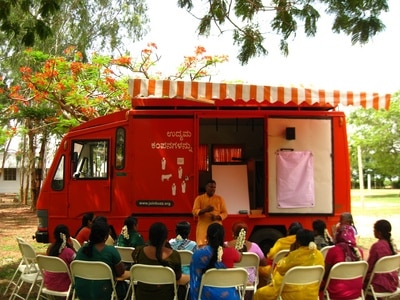PERSPECTIVES
An Innovative Approach to Enable Financial Capability
October 30, 2014
Last month, India Prime Minister Shri Narendra Modi announced his vision to end 'financial untouchability' in the country by providing universal access to banking. The target is to open 75 million new savings accounts in six months, supported by a massive financial literacy drive. Barely 40 percent of Indians currently have access to formal banking, making this initiative a national imperative.
And I am proud that Citi is supporting his vision. Citi India, with support from Citi Foundation, has been proactively supporting financial education and inclusion programs across the country. In 2004, Citi Foundation, SEWA Bank, Women's World Bank and Coady International Institute established the Citi Center for Financial Literacy, which has since provided financial education to an estimated 800,000 low-income women.
In 2008, we expanded the scope to take financial education to schools, reaching out to more than 500,000 children through our NGO partner, MelJol. Particularly inspiring, about 80 percent of these children, most of whose parents may not have visited a bank, are now developing saving habits.
In 2011, to provide relevant financial education to and engage with under-privileged urban youth, we helped introduce money management into job-skill training through our partnership with American India Foundation (AIF).
This year, we took our efforts to a new level by encouraging NGOs to develop innovative financial education and capability programs that expand financial inclusion. To promote innovation and scaling to increase impact of Citi Foundation's grants in the community, we launched a first-ever Innovation Grant Program (IIP).
The India Innovation Grant Program invites NGOs to develop new and innovative financial education and inclusion programs that are scalable and replicable and then pitch these for Citi Foundation grants. We received 31 applications. Seven NGOs programs, which will impact over 580,000 women, youth and children, were finally selected after a robust review and approval process by the Foundation.
The new programs are certainly innovative and make good use of technology to attain scale.
The pilot programs submitted by AIF and Grameen Foundation will use technology to deliver financial education. AIF will create smart classrooms in schools while Grameen will leverage mobile phones in rural areas, taking advantage of India's 42 percent rural wireless tele-density.
New NGO partner Navya Disha will address rural India's challenge of 'common space' and women's limited mobility through 'financial-literacy-in-a-bus' to bring financial learning classrooms anywhere. This mobile school, Buzz, will travel across villages to deliver financial education to an estimated 3,000 women in Karnataka in the south of India.
For low-income women, Swadhaar FinAccess will deliver financial education in Mumbai through peer-teaching using tablets instead of classroom study. Long-standing partner Parinaam Foundation will help low-income women across India learn and make use of financial planning.
We are optimistic that through these programs, we will be able to further financial capability in this nation of 1.2 billion people and definitely support India's national goal to end 'financial untouchability'.
Sign up to receive the latest news from Citi.
Select Preferences
